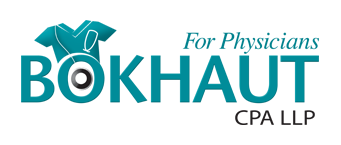As the holiday season approaches, doctors often give gifts to colleagues, administrative staff, nurses, and...
Physician New to Canada? What you need to know about Canadian Personal Taxes.
You May Also Like…
Are you a physician that moved to Canada in the last year? If so, these are some things that you should know about filing your first Canadian Personal Tax Return:
When are Canadian taxes due?
Canadian personal taxes are calculated based on income earned between January 1st and December 31st each year.
Your personal tax return must be filed with the Canada Revenue Agency (CRA) by:
- April 30th of the following year, if you are not self-employed.
For example, if you were a resident physician in 2022 and only had employment income, your 2022 personal tax return must be filed by April 30, 2023. - June 15th of the following year, if you are self-employed.
For example, if you earned fee-for-service income in 2022, your 2022 personal tax return must be filed by June 15, 2023.
If you owe taxes, you must pay the tax balance by April 30th of the following year regardless of your filing deadline.
As a result, even if you did earn self-employment income in 2022 and have the June 15, 2023 filing deadline, it is best to start preparing your personal tax return well before April 30, 2023. This will ensure that if you have a tax balance owing to the CRA, you have ample time to make the payment before April 30th.
How are Canadian Personal Taxes Calculated?
Income Earned Before Becoming a Canadian Resident:
Any income earned prior to your move to Canada would not be taxable on your first Canadian personal tax return. However, you must still report this amount to the CRA.
The amount of income that you earned between January 1st and the date that you entered Canada is used to calculate certain personal tax credits, so your accountant will ask you to provide them with the amount of income that you earned prior to living in Canada as well as the income that you earned from the date that entered Canada.
Income Earned After Becoming a Canadian Resident:
Your Canadian personal taxes will be calculated based on your world-wide income from the date that you became a Canadian Resident.
For example, if you moved to Canada during 2022 but continued to earn income in your previous country of residence after your move to Canada, the income would be taxed on your 2022 Canadian personal tax return.
Canadian personal taxes are calculated on a graduated scale. The calculation is explained in detail in our Basic Overview of Canadian Personal Taxes – Bokhaut CPA Inc article.
Other Things to Consider:
Foreign Property:
If you hold “property” in another country with a total cost* of more than $100,000 CAD, you will need to file an annual Foreign Income Verification Statement.
“Property” includes, but is not limited to:
- Cash
- Investments
- Rental properties
- Vacant land
- Life insurance policies
The Foreign Income Verification Statement does not result in any additional taxes, however if the statement is not filed on time, it can result in significant penalties.
For your first year in Canada, you are exempt from filing this form. However, any income earned from these properties in the tax year will need to be reported on your Canadian personal tax return if it was earned after the date that you entered Canada.
*The “cost” of the property would be calculated as the Fair Market Value of the property at the date that you came to Canada (converted into Canadian dollars at that same date).
Moving Costs:
In Canada you are allowed to claim moving expenses if you moved at least 40kms closer to your place of work.
Unfortunately, the move from another country to Canada, generally does not qualify for this moving expense deduction as those moving expenses are a cost of immigration.
There are a lot of things to consider when filing your first Canadian personal tax return, as a result we highly recommend that you consult a tax professional.
* This article was prepared on February 16, 2023. Content is for informational purposes only and is not intended to be used as professional advice. Each taxpayer’s circumstances are unique. Bokhaut CPA makes no representation as to the accuracy and completeness of the information in this article and will not be liable for any errors or omissions in this information.
You May Also Like…
Tax Implications of Gift Gifting From Your Medical Practice
As the holiday season approaches, doctors often give gifts to colleagues, administrative staff, nurses, and professional advisors. While these gestures are generous, they may lead to unexpected tax implications. Gifts to Non-Employees: Doctors may give gifts to...
11 Reasons Why Physicians Contribute to RESPs
As veterans of higher education, physicians often anticipate that their children will carry the torch of post-secondary learning. Physicians can optimize savings and tax on this future expenditure by contributing to a Registered Education Savings Plan (RESP), which...
Basic Overview of Canadian Personal Taxes
Personal tax season is upon us and as you gather your personal tax documents you may be wondering “How are my personal taxes calculated?”. How are Canadian Personal Taxes Calculated? Canadian taxes are based on a graduated rate system. This system can be thought of in...
I Just Called to Scam You
How to determine if it’s CRA on the line. Over the past few years, scam phone calls from individuals claiming to be from the Canada Revenue Agency (CRA) have increased. As we approach the time of year to file personal tax returns, these calls become more frequent as...
RRSP or TFSA
RRSPs and TFSAs are both “registered” investment accounts, which means that they receive special tax treatment that is not applicable to other “non-registered” investment accounts. The special tax treatment of these accounts increases the total benefit of investing by...
Month of Giving (Part 3): Donation of Securities
Instead of liquidating securities to fund donations, it may be more tax efficient to donate securities directly to charitable organizations. If you sell a security to obtain cash to donate, you generally need to pay tax on the profit earned, also known as a capital...
Month of Giving (Part 2): Tax Efficient Donating
Many physicians in Canada have incorporated their practices, as there are significant tax benefits to doing so. This then provides incorporated doctors with two avenues to donation: Corporate Donations Personal Donations We are often asked, “should I make donations...
Month of Giving (Part 1): Donation Tax Credit Refresher
December is the month of giving. While deciding which charitable organizations you wish to support this year, the following donation tax credit information is good to keep in mind: What qualifies as a donation for tax purposes? To qualify for the donation tax...
The Season of Giving – is it taxable?
As the holiday season approaches, it is not unusual for doctors to provide gifts to their employees, hospital administrative staff, colleagues, and nurses. While these gifts are generous gestures, they may result in unexpected tax implications. Gifts to Employees When...
Financial Considerations of Buying a Home
There is a lot to think about when you buy your first home. What colour should you paint the living room? What should the extra bedroom be used for? A home office? A gym? Or maybe a nursery? Outside of aspirational objectives, there are many practical matters...









